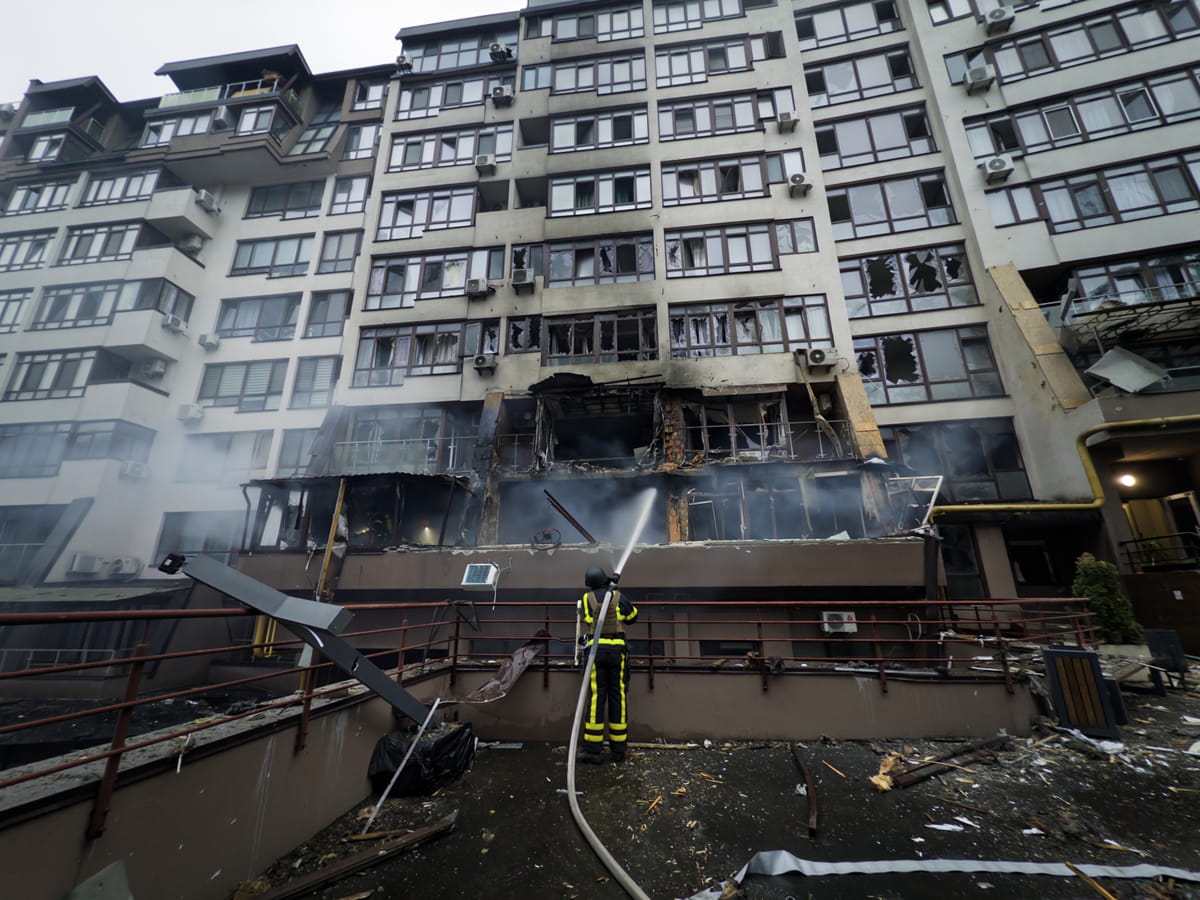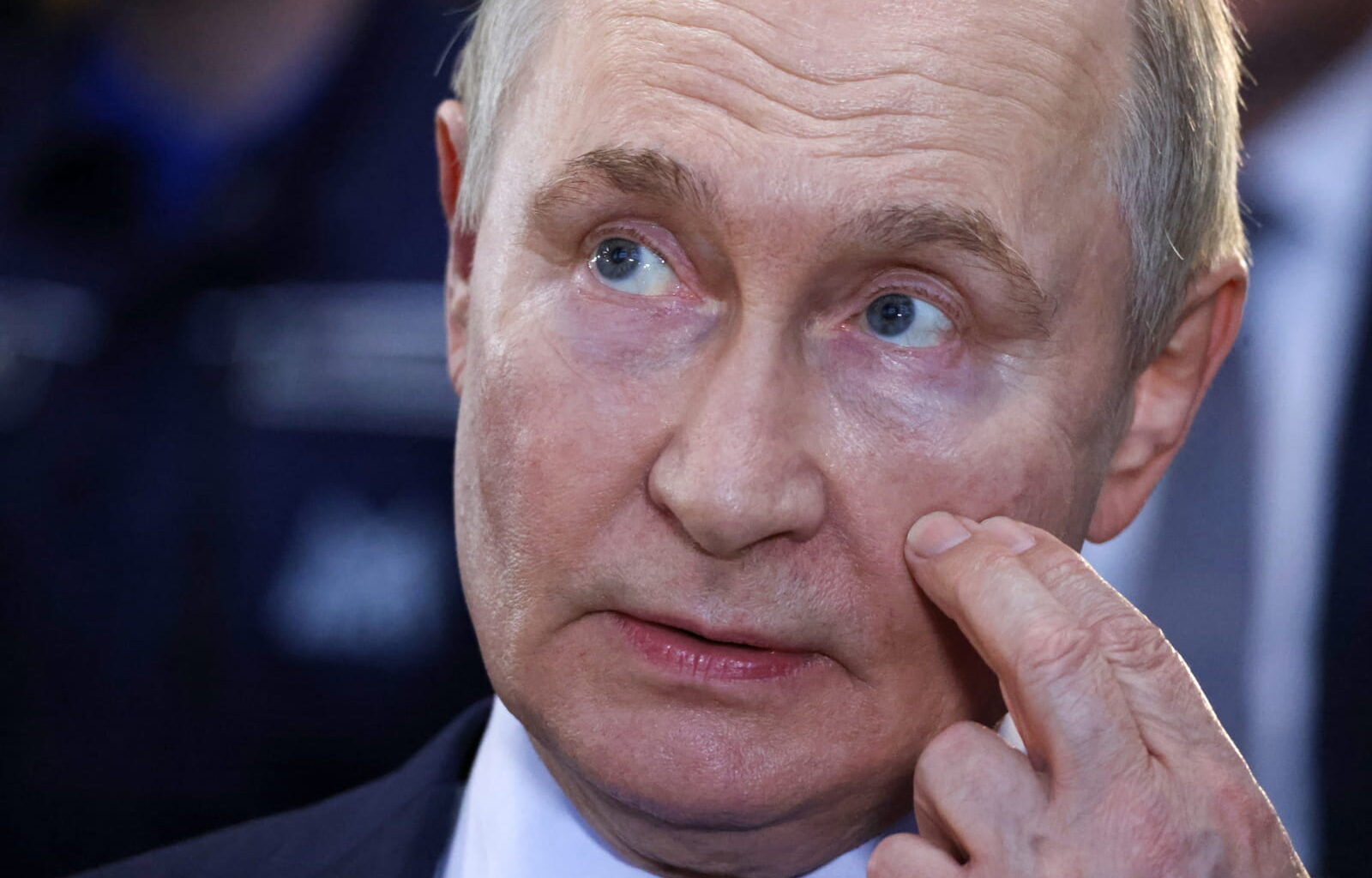In the past few days, the US president issued another ultimatum to the warring parties in Ukraine, although this time, Donald Trump focussed his ire on Russia. Apparently sick of seeing Russia’s accelerated aerial assault on Ukrainian cities and its increasing toll of civilian suffering, Trump agreed to send more air defence weapons to Ukraine.
In the military, we like to talk about picking stupid enemies to fight if possible. Putin, a cunning yet brutal opportunist, has demonstrated again that he might fall into the “stupid enemy” category when viewed from a perspective of long-term strategy.
Putin’s response to Trump’s call for a new peace deal otherwise face new sanctions in 50 days has been to engage in several nights of air raids on Ukrainian cities with hundreds of drones and missiles. Russia’s trade with America presently sits at about $3 billion per year. Tariffs on this trade are almost certainly not going to shift Putin’s calculus. But if he continues his single-minded dedication to the subjugation of Ukraine – his unchanged goal since the start of the war – might he force a humiliated Trump into increasing the flow of US weapons to Ukraine?
Every single one of Putin’s assumptions was proven wrong within 24 hours of the Russians crossing the Ukrainian frontiers.
For a Russian Army that is making small progress on the ground, but taking massive casualties in doing so, this might be disastrous. This increased US aid would help Ukraine with its defence. More importantly, it would provide a boost in morale for Ukrainian soldiers and civilians, as well as governments in Europe worried about Russia’s aspirations for other military adventures.
Putin has form in this regard.
Before Russia’s full-scale invasion of Ukraine in February 2022, Putin made three crucial strategic assumptions. First, he believed the Ukrainian government was weak and would fall under the pressure of Russian military operations. Second, he assumed the Ukrainian military was weak and would not fight for long if challenged by the “might” of Russia’s military. Third, and perhaps most importantly, Putin assumed that NATO would not offer significant diplomatic or military assistance to Ukraine, given their generally supine approach to Putin’s 2014 invasion of Crimea and eastern Ukraine.
Every single one of Putin’s assumptions was proven wrong within 24 hours of the Russians crossing the Ukrainian frontiers.
The Ukrainian president, issuing his now famous “I need ammunition, not a ride” appeal, united his nation. Ukrainian resistance inspired an until-then moribund NATO to energise and massively step up military and intelligence support for Ukraine. As a consequence of this, and the gritty courage of the Ukrainian military, Putin’s rapid thrust towards Kyiv bogged down. In the face of Ukraine’s creative asymmetric defensive strategy, a battered and cowed Russian army was repulsed in the north and forced into a humiliating retreat back across the border into Belarus and Russia.
Another instance of Putin’s lack of deep strategic competence since then includes his campaign to rule the waves in the Black Sea. The Ukrainians, without a conventional naval surface fleet, built an entirely new uncrewed maritime strike capability, enhanced with naval missiles, special forces and foreign-supplied intelligence, and forced the Russian Black Sea fleet into another humiliating retreat across to the eastern shores of that large body of water.
Putin’s brutality, and the incentivisation of brutality against civilians and Ukrainian soldiers, has also spectacularly backfired. Putin awarded medals to the military unit responsible for the Bucha massacre, which has placed him squarely in the cross hairs of investigators in The Hague. Ukrainians, because of Putin’s strategy of brutalisation, know that as bad as the war is now, losing to Putin and being subject to his occupation would be much worse. Putin’s actions ensured that a Ukrainian surrender is now a very unlikely scenario.

Extinguishing a fire in Shevchenkivskyi district in the aftermath of a Russian missile and drone strike on Kyiv, Ukraine, 21 July 2025 (Kirill Chubotin via NurPhoto/Getty Images)
A final example of Putin’s opportunism that is likely to result in poor strategic outcomes is his embrace of China and North Korea in the past three years. Russia has signed strategic partnership documents with both nations since 2022. China and North Korea are now critical enablers of Russia’s war effort. And despite the strategic truism about the importance of alliances, Russia’s expanded strategic relationships with these two Asian dictatorships appears to be resulting in a Russia with a long-term reliance on Chinese trade and finance, and North Korean weapons. Great powers, which Putin believes Russia is, should never be so beholden to other nations.
Democracies face a sustained, multi-generational confrontation with the major authoritarian powers of the world.
What might be the outcome of Putin’s current stance? Putin has demonstrated a capacity for agile opportunism throughout his rule of Russia. But, as the last few years have demonstrated, this approach does not always lend itself to effective strategy or positive long-term outcomes. Despite his speeches about the historic role that a Russian nation has played, and will play into the future, these narratives from Putin are not the same as good strategy.
There are two useful lessons in this.
First, that authoritarian powers by the nature of their power structures and decision-making approaches, have vulnerabilities. This is important to understand as democracies face a sustained, multi-generational confrontation with the major authoritarian powers of the world. An understanding of authoritarian vulnerabilities can provide insights into where these nations might be targeted to degrade their aggression, resources and influence.
The second useful insight is that an integrated national security ecosystem that encourages debate while nurturing a balance between short term adaptation and long-term strategy is essential for securing positive long-term national outcomes in the 21st century. With Australia and the United States each developing a National Defence Strategy for release in 2026, investing in this approach to contemporary national security is crucial.
Putin’s instinctive opportunism to continue attacking Ukraine in the wake of Trump’s recent ultimatum might be useful for him domestically. But it may turn out to be very bad strategy.
